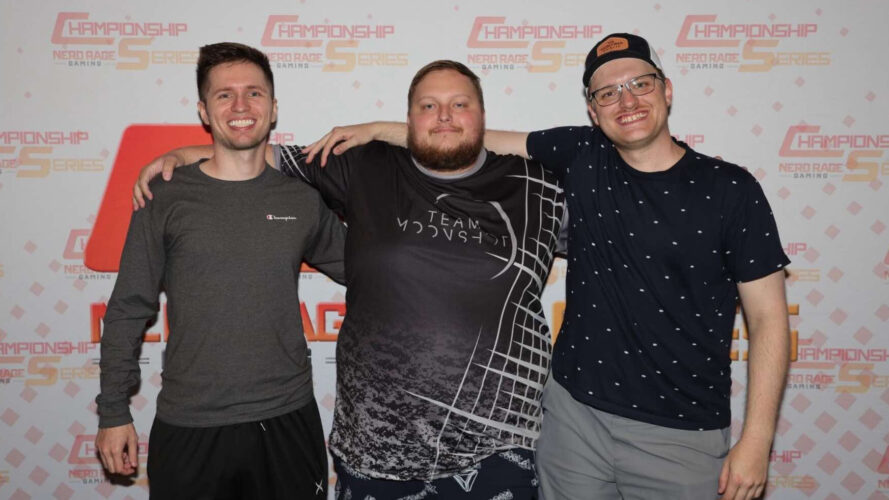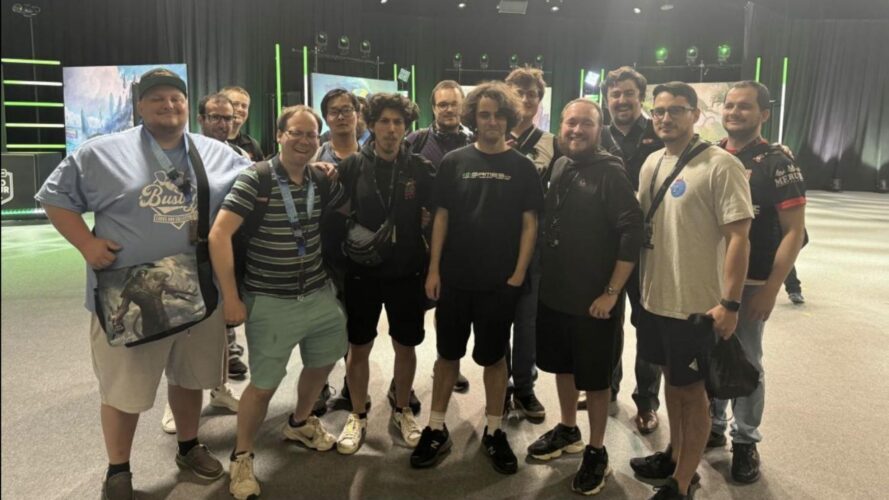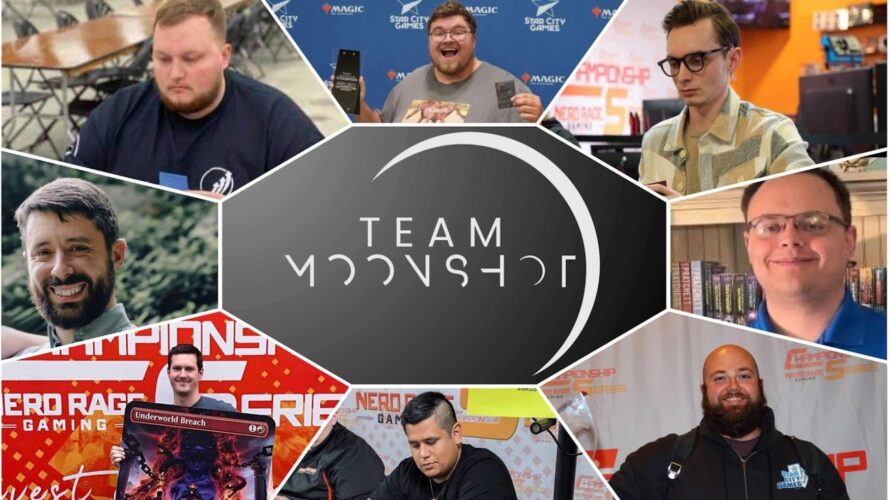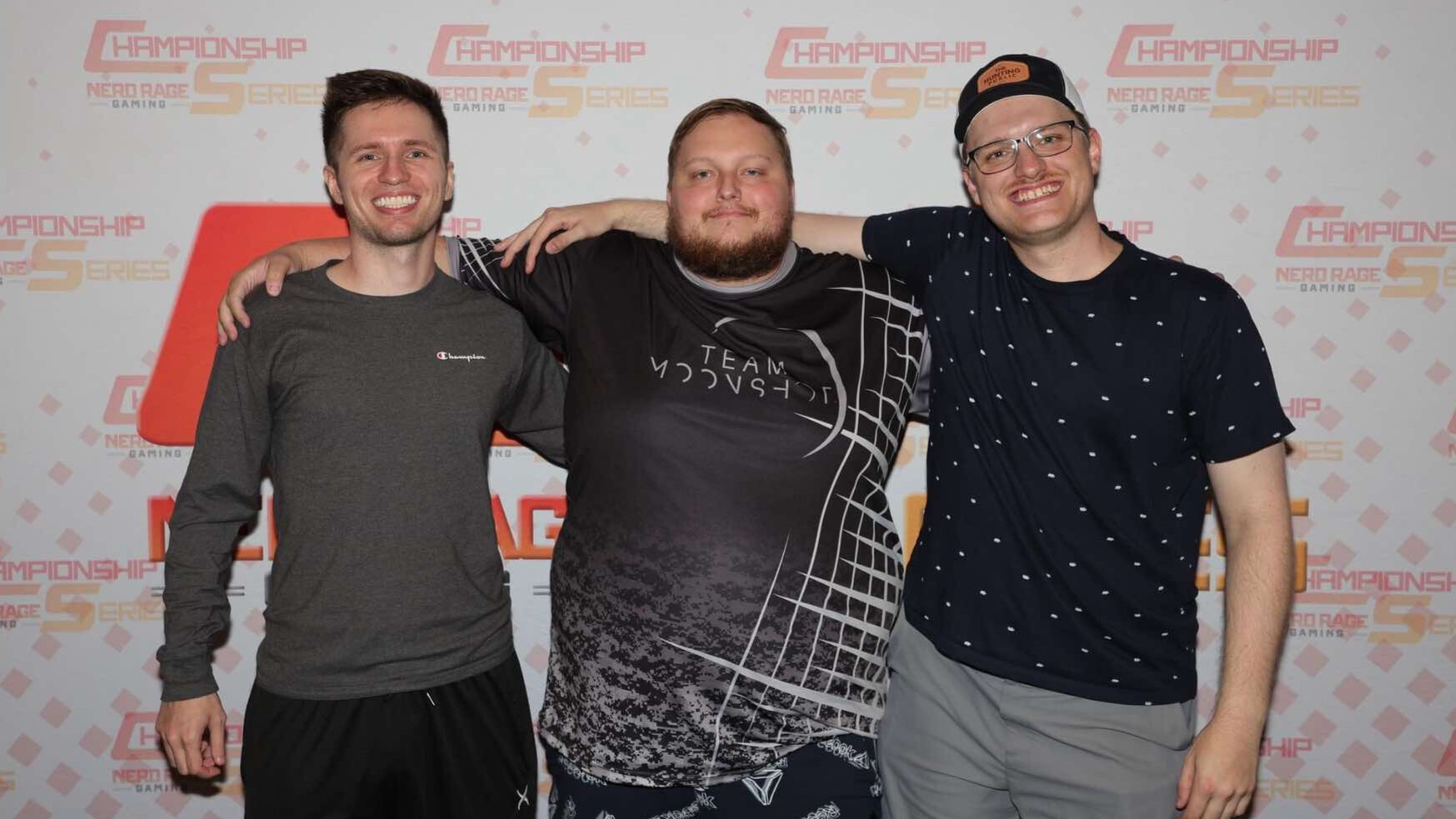“I’m not great at everything, but I am great at one thing: surrounding myself with excellent people. And that tends to take care of the rest.” — Sheldon Menery
If you watch any amount of professional-level Magic: The Gathering, you’ll recognize some of the big testing teams: Team Channel Fireball, Team Handshake, etc. One thing these teams have in common is fantastic results, and it’s obvious why. Would it surprise anyone if a group of the best Magic players in the world, all working and interacting together, had an edge on the competition? Of course not. If your Limited meetings are led by titans of the game like LSV and Kai Budde, it’s easy to imagine your team’s Limited prep being significantly better than that of others in the tournament.
Unfortunately, most of us don’t have access to the Reid Dukes and LSVs of the world to help us prepare for these tournaments. So, are we just out of luck? I don’t think so. In this article, I’m going to dive into how my recent success in Magic: The Gathering is a direct result of working with a couple of groups of people, and how this collaboration has elevated our games together.
Local Team
I’ve been playing Magic since 2009, and I’ve been moderately competitive since about 2012. I didn’t start taking it seriously until right before COVID-19, which temporarily derailed my competitive Magic journey. However, when things began to open back up, I resumed the grind. I say this at the risk of sounding arrogant, but I really was crushing it locally. Winning FNM or other local events was a common occurrence for me. But when it came to RCs, NRGs, or any big tournament, I just couldn’t convert.
The event that started to change this was NRG St. Louis 2023. Like most team tournaments, I was planning on teaming with some friends of mine, playing the Lord’s format (Legacy), and having a good time. With my team lined up and my calendar cleared, I thought everything was set—until an unfortunate event caused my team to fall through. Most of my other friends had either committed to another team or weren’t making the trip. I thought my luck had run out until a couple of really good local players, who I was acquainted with, contacted me about being their third. The idea of joining a strong team after my previous one fell through seemed perfect, so I was in.

We were all strong players locally, and it was awesome to be on a team with them. Throughout the tournament, we didn’t talk much during matches (other than me occasionally suggesting Hunter make the winning play instead of the flashy one) because there was a lot of trust that we each had our games under control. When it was all said and done, we finished 3rd/4th at the NRG, with our team’s first and only match loss in the semifinals.
After the NRG, we decided to skip the 5K on Sunday and visit the zoo, adding to the weekend experience. But more valuable than the NRG top 4 was the formation of a group of players we trusted and knew were skilled at Magic. We started testing together and collaborating for future NRGs, RCQs, and eventually RCs.
This was one of my biggest level-up moments as a Magic player because, for the first time in a while, I wasn’t solely relying on my understanding of matchups, my testing, and my mechanical play. I could also draw on the insights of two other players I respected, and it made us all much better, very quickly. Since we started playing together, we’ve achieved four NRG top 8s between us, we’ve day 2’d RCs, one of us got a heartbreaking 33rd place finish at an RC, and I eventually top 8’d an RC.
To anyone who wants to improve at Magic, I recommend putting your ego aside, finding good local players, and starting to play and test together. Trust me, I know it’s super satisfying to have rivalries with players (even when they don’t know it) and celebrate silently when you beat them at FNM. But it’s a much better feeling to grow as a Magic player, to watch yourself and your team improve, and to raise the level of your local scene.
PT Team
Top 8’ing the RC fulfilled my long-time Magic dream: qualifying for the Pro Tour. However, there was one more step—I needed to actually play in the Pro Tour. The RC in Dallas and the Pro Tour in Amsterdam created an interesting situation. Let me outline the key dates:
- June 1, 2024: RC Dallas
- June 14, 2024: Modern Horizons 3 Release Date
- June 28, 2024: Pro Tour MH3
It goes without saying that this schedule was insane. Not only was planning an international trip in three weeks crazy, but the formats for the Pro Tour were Modern and Modern Horizons 3 draft. Anyone who has played Modern in the last few years knows that the Horizons sets inject a ton of powerful cards into the format. For better or worse, the format looks much different after a Horizons release, so I essentially had to learn a new format in three weeks. Additionally, I couldn’t remember the last time I drafted something that wasn’t a Cube. Not only did I have to draft a brand new set, but I had to do it in Pro Tour pods with some of the best players in the world. These tasks felt nearly impossible.
Fortunately, moments after finishing the RC, a local friend of mine and Pro Tour mainstay, Derrick Davis, contacted me and said he would try to get me onto the Pro Tour testing team he was on. I was fortunate enough to join Team Temple of Malady.

This team comprised members who were playing in their first Pro Tour, alongside those who had played in many, and everything in between. The team included people from all over North America and Europe, and for me, it was a massive boon to learn from some of these players. We discussed Constructed extensively and eventually developed a 4C Nadu list for the Pro Tour. This deck ended up being one of the few with a good win rate against Bant Nadu. One person on our team top 8’d the Pro Tour with it, and another went 9-0-1 in Constructed. I’ve built decks before, but participating in designing a deck that was so well-positioned at the Pro Tour was an experience I never thought I’d have. The process taught me a lot about testing and deck-building that I’ll carry forward in my Magic career.
The other huge benefit of being on the team was Limited testing. We played a ton of drafts, and when we started, I was awful. I think I 0-3’d the first two drafts at the team house. I was evaluating cards poorly, not playing around things well—basically, everything you could do wrong, I was doing wrong. But the team was patient and very helpful, so by the end of our Limited testing, I felt like I had a better understanding of MH3 Limited than any other set in Magic. This culminated in me 3-0ing my first-ever Pro Tour draft.
I’m very fortunate to have had the connections to join that team. But one thing I will say is that you get out what you put in when it comes to teams. The reason I could get so many drafts in and do so much Constructed testing was that I was willing to do it. I was willing to jam games, discuss loops and combos, and be available to the team. I undoubtedly got more out of the team than I put in, but that’s the point of a team. If everyone contributes a good amount, everyone should get a significant return on their time investment. So, whether it’s a group of locals or Pro Tour players from around the world, make sure you’re willing to give your all to the team so you can get the most out of it.

Team Moonshot
Given my experiences with good players around me and the impact teams have had on me as a player, I expect Team Moonshot to be another great level-up opportunity. While I accomplished my goal as a Magic player by playing in a Pro Tour, it only made me hungrier to do it again. My hope is that the combination of Team Moonshot and the connections I’ve made over the last few years can help me, my friends, and this team reach that level.
The added benefit of Team Moonshot is that I get to put some of what I’ve learned on paper for others to read and learn from. I think this is an important part of the puzzle. All my examples so far have involved finding players as good as or better than me, which propelled me to higher heights. However, I think it’s equally important to share the knowledge you gain with those around you. I spend a lot of time playing Magic locally, and while I do, I try to help others improve. Some might argue that teaching others will make you lose your edge (“a magician never shares his secrets”), but I believe iron sharpens iron. It’s much easier to improve when those around you are better. Additionally, I think it’s our responsibility as experienced players to pass on what we’ve learned. If you think back, there were certainly people who were better than you who taught you things to get you where you are today. Now, it’s your turn to do that for others.
In conclusion, make connections and group up with like-minded local players. Have an open mind and put all the effort you can into the team to level everyone up. Be available to those who aren’t as good as you to level up the community around you. I believe these three things, along with the people who helped me along the way, took me to the top 8 of the RC and my first Pro Tour. I believe they can help you reach new heights as a Magic player, too.


Leave a Reply